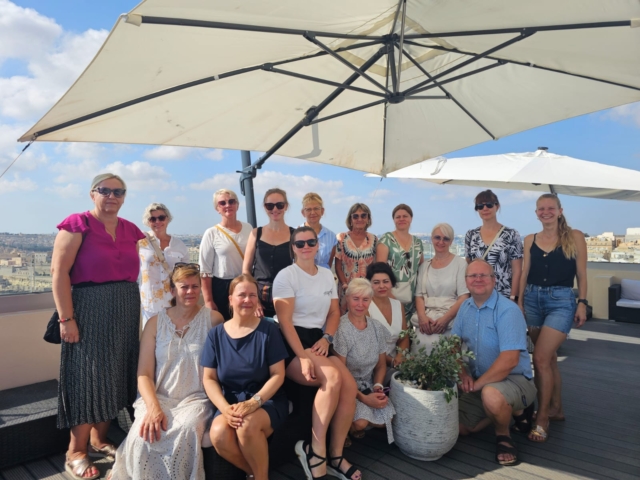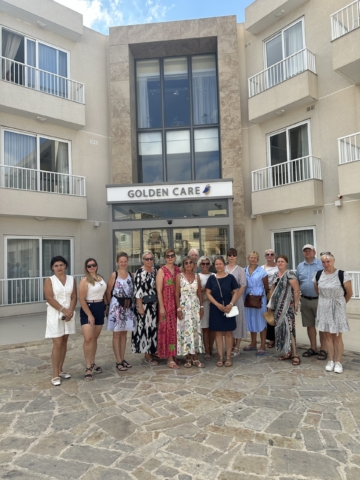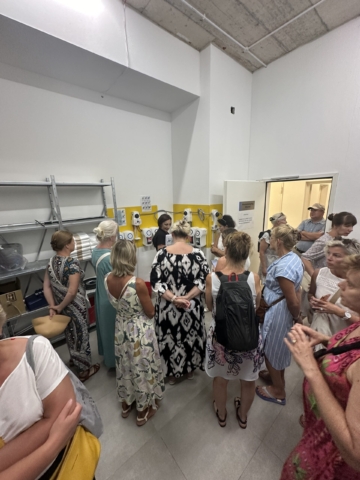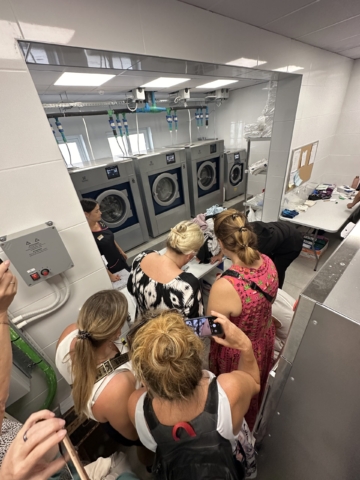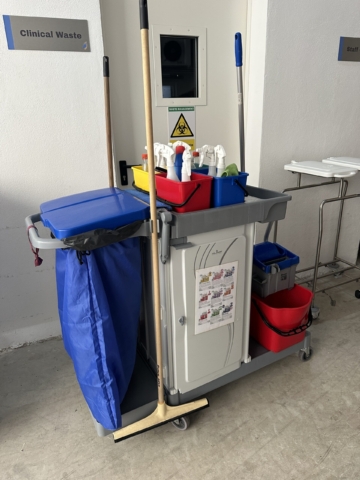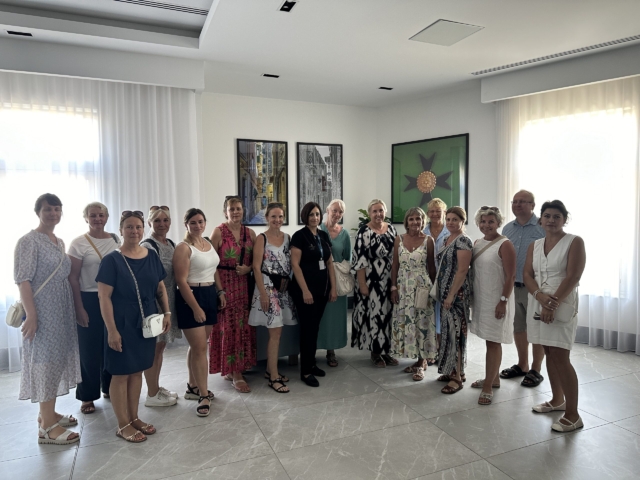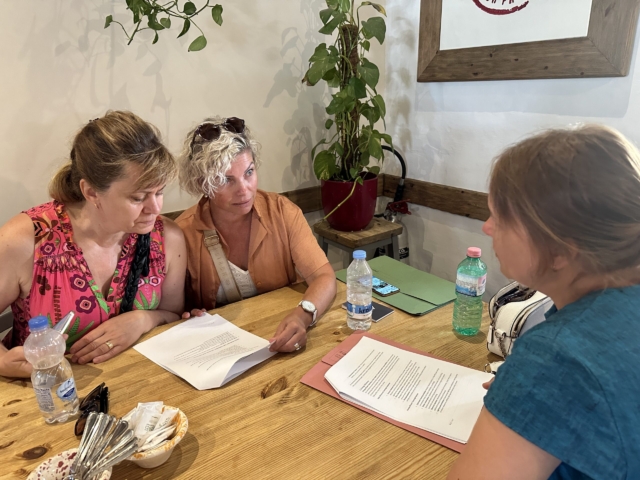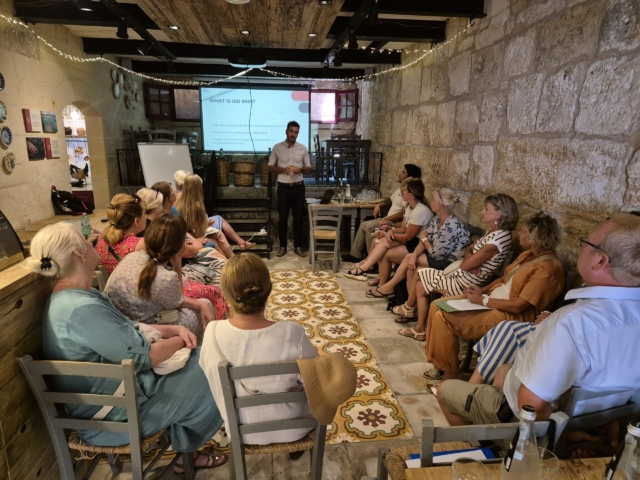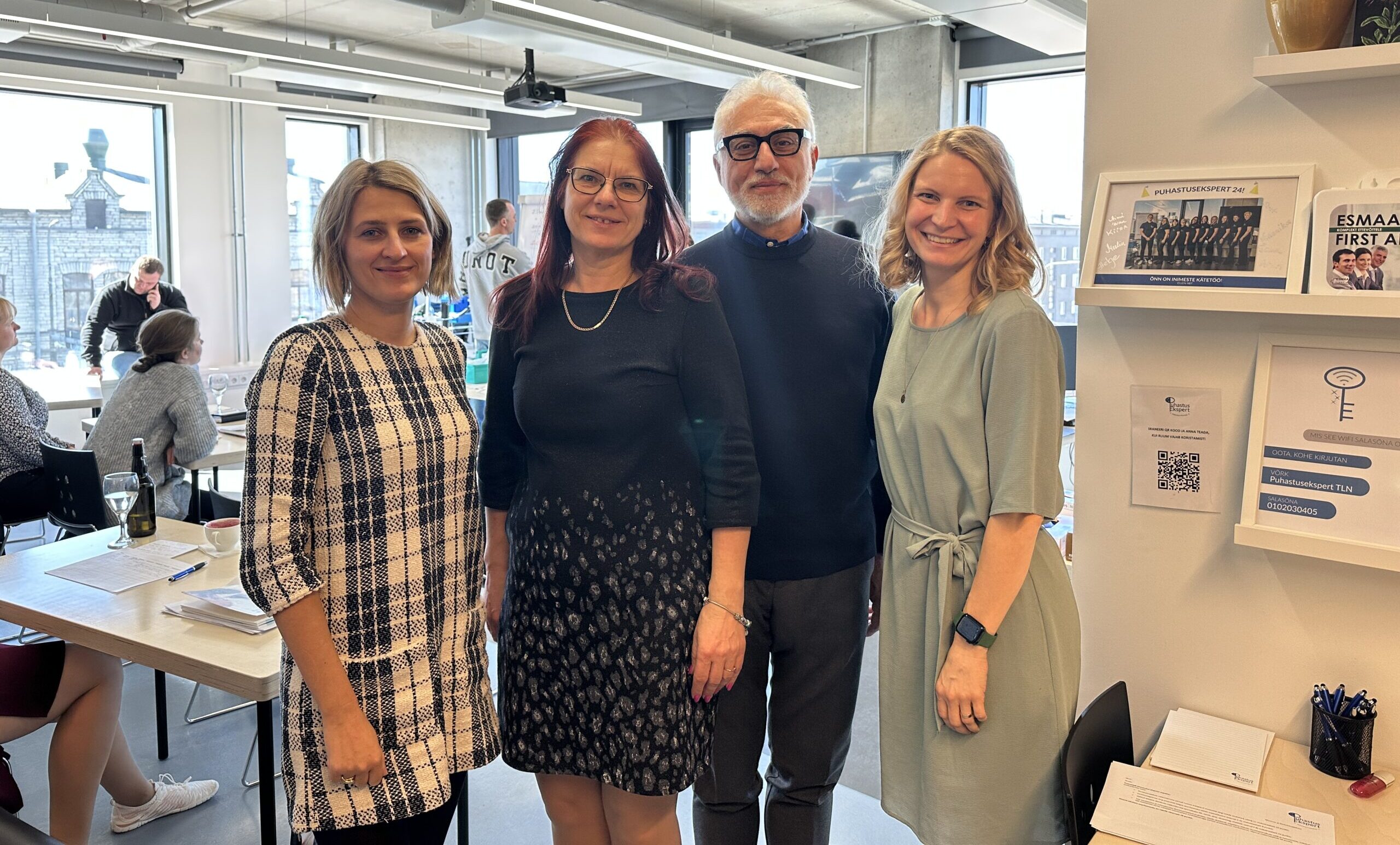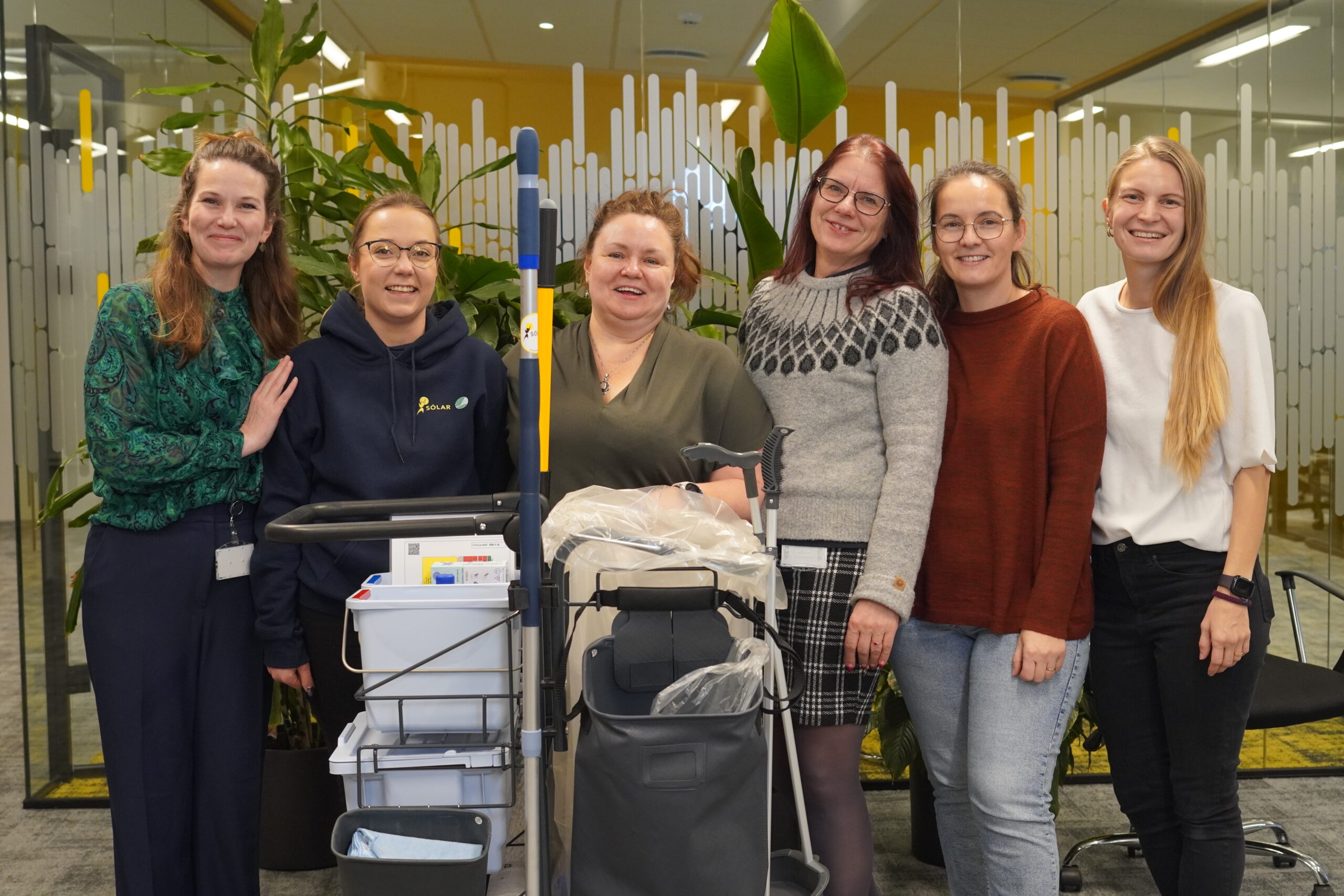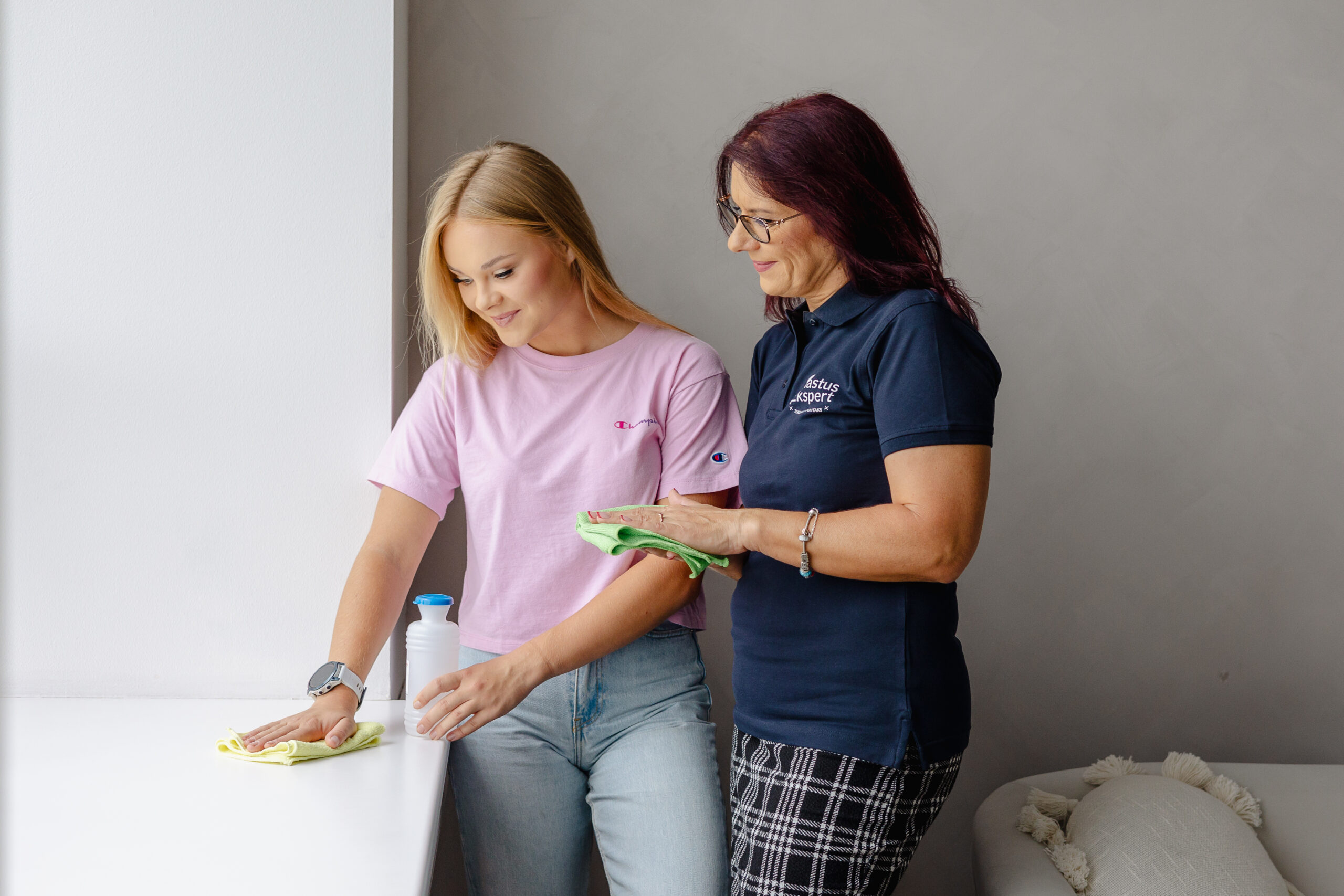Job shadowing to Malta from 5 to 9 August 2024
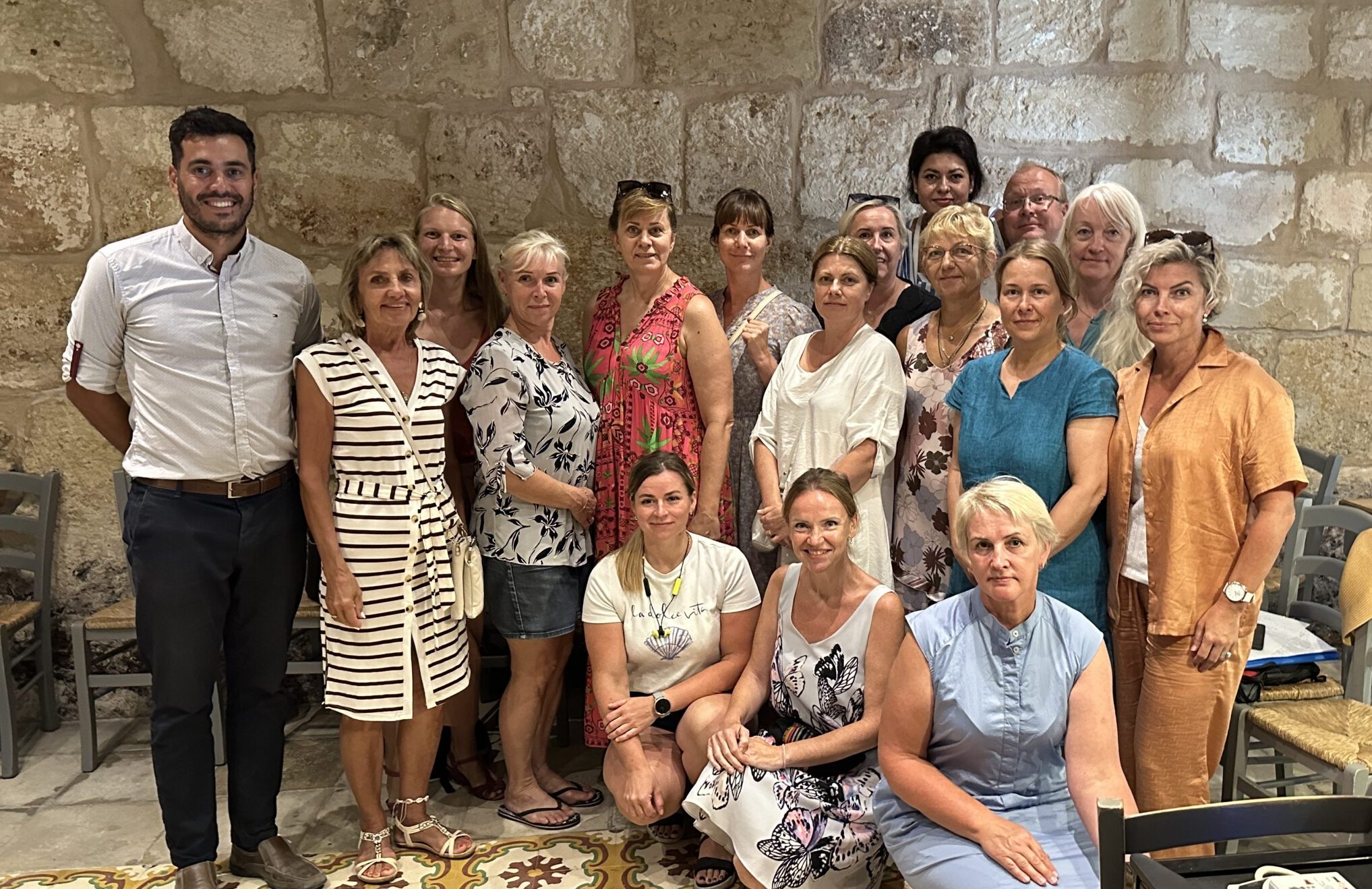
The job shadowing were organised by host organisation Paragon Europe. A comprehensive and inspiring training programme was delivered by ISO management system consultant Luke Desira.
In the course of job shadowing, we observed the organisation of the cleaning processes and the cleaning principles applied in a nursing home. One big difference we saw was the choice of cleaning methods. We learnt that the predominant method of cleaning in Malta is wet cleaning, which means using water from a bucket with a wringer on a trolley. The effectiveness of the wet cleaning method in the nursing home was ensured by drying all surfaces with a dry microfibre mop. Estonia and Northern Europe have predominantly moved to using pre-moistened mops in healthcare institutions. The pre-moistened mop system translates into moist mopping, where the bucket of water is not carried on the site, using instead a sufficient quantity of mops pre-moistened with the correct dosage.
Job shadowing in a nursing home confirmed for many participants that cleaning and hygiene in healthcare facilities in Estonia are generally good. For example, many hospitals in Estonia use moistening bottles rather than spray bottles. Particulate matter projected from spray bottles can be dangerous to the respiratory system and the constant wrist movements can be stressful on the joints. While moistening bottles are regularly washed in Estonia, the Maltese nursing home experience suggests that spray bottles are never washed. They are used and filled with the cleaning agent solution until they break and a new bottle is put into use.
Job shadowing revealed spacious rest and washrooms for employees. It also turned out that the number of carers and cleaners per resident in a nursing home is significantly higher than in Estonia. This means that there is likely to be less stress at work and patients likely receive a better quality of service. Indeed, all the participants noticed that the residents of the nursing home were particularly happy and content.
The training programme focused on the implementation of the principles of the ISO 9001 management standard. The programme highlighted the idea that management by standards improves operational efficiency, promotes the underlying business and supports management. Implementing standards-based management requires collecting a variety of data. If you have no data, you only have an opinion and opinions can vary widely.
Describing procedures of any kind will help to make the work of a company or institution more efficient and maintain the desired quality in the various areas of activity. This allows management to concentrate on improving the process rather than blaming people when obstacles and setbacks occur.
If a problem arises during work, any actions are to be adjusted based on the ISO 5 step process:
- Describe the problem that happened
- Solve the problem as quickly as possible
- Find the root cause using the 5 Whys method
- Develop a solution, including update training and procedures
- Follow-up in the coming months to make sure that the updated procedure ensures smooth operation in the future
A great advantage of a study trip is seeing cleaning processes in other countries and sharing experiences. It broadens your horizons and allows you to learn from the experience of others. Another bonus is that you get to know people in the same field who are part of your group and make new contacts, leading to great opportunities for collaboration and innovative ideas on how to promote the cleaning industry.
The article was compiled by: Jaanika Kasemets, Siret Raid


